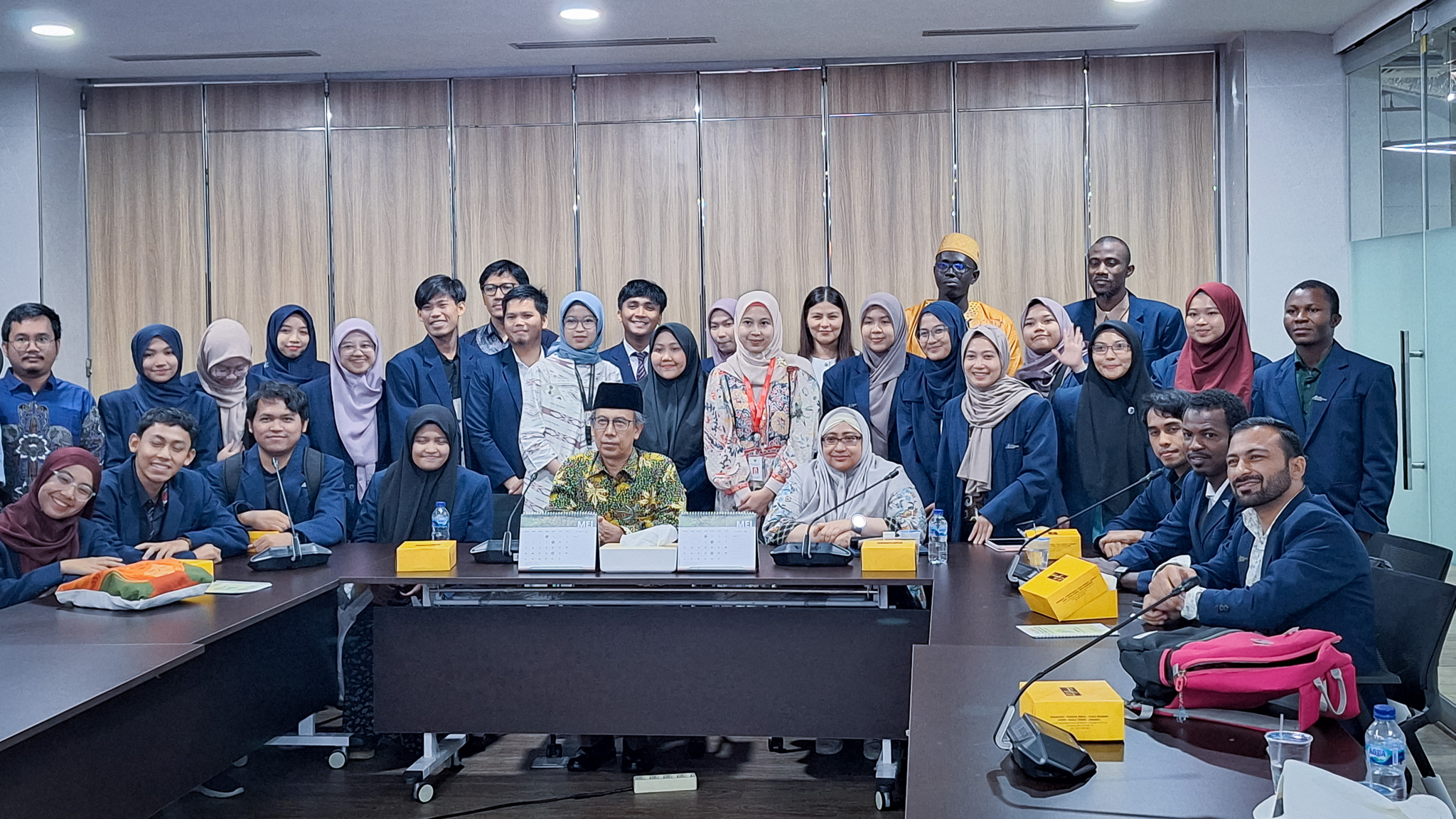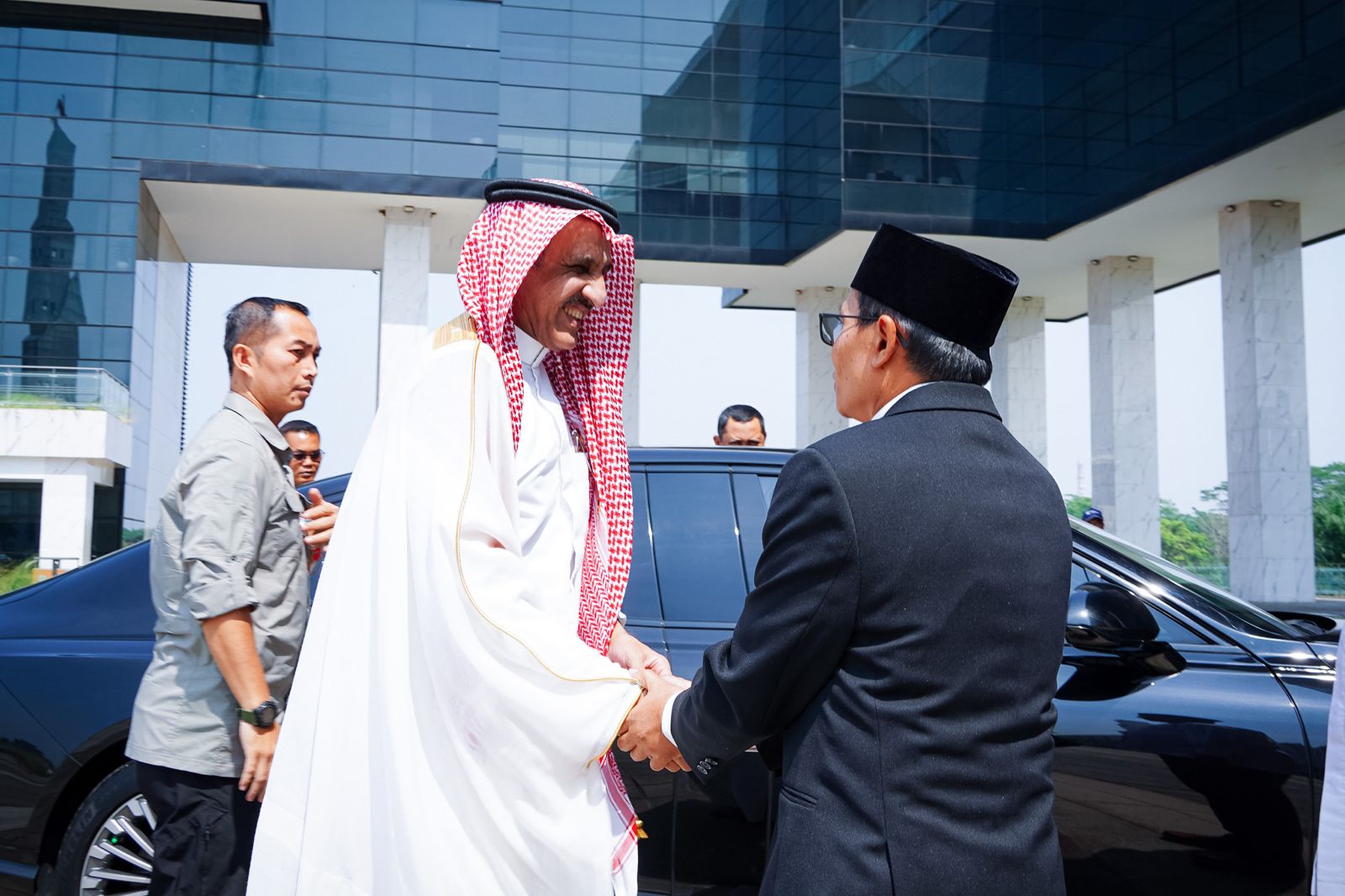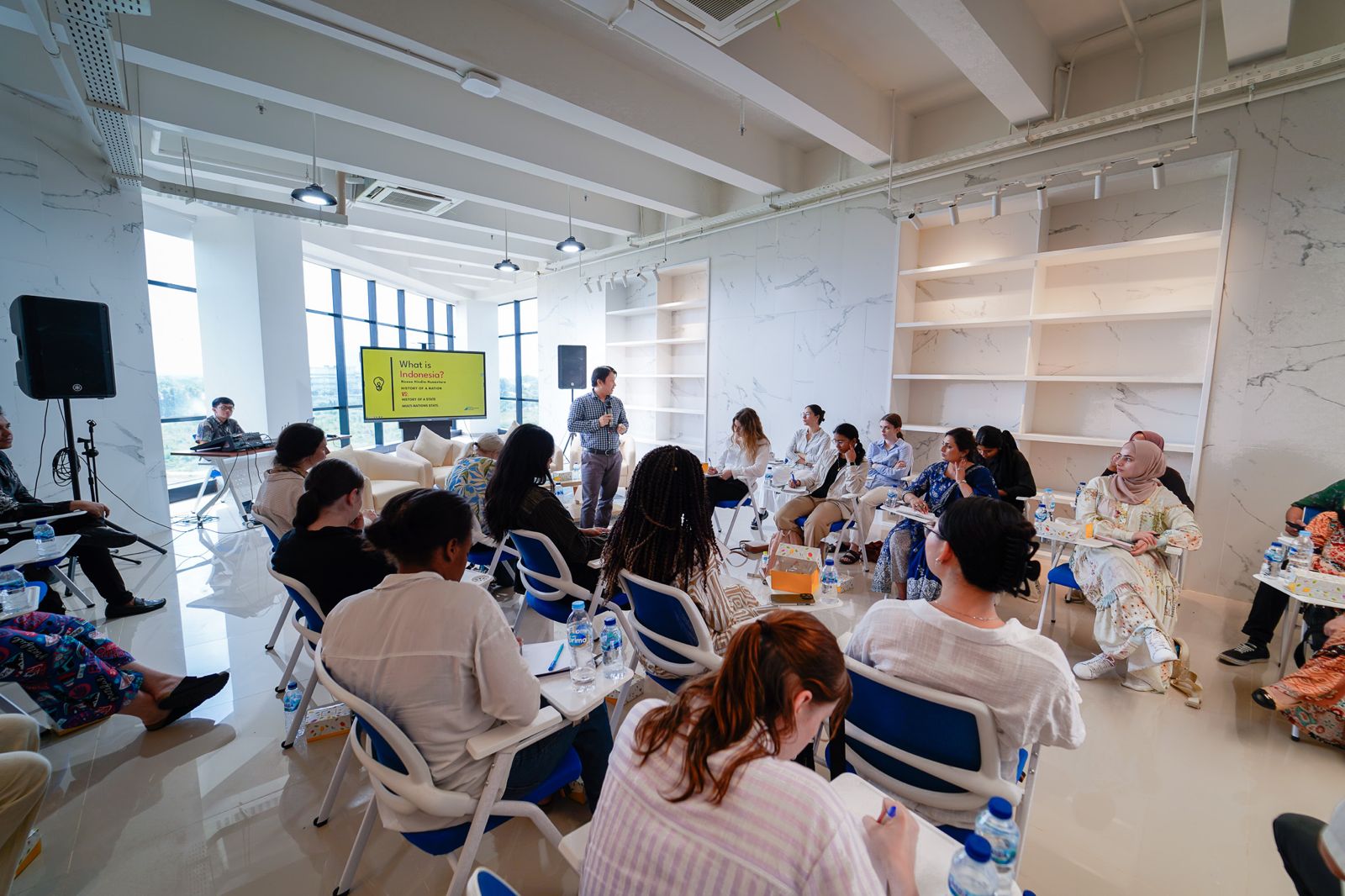UIII Students Visit BAPPENAS, Getting Closer to National Development Planning
July 23, 2024Contributor: Intan Fasya Zahara | Editor: Supriyono

Students of the MA in Education program at UIII visited the office of the Ministry of National Development Planning (BAPPENAS) in Central Jakarta, on June 21, 2024. The tour was part of the ‘Education and Society’ course, convened by Dr. Amich Alhumami, UIII lecturer who also serves as Deputy for Human Development, Society and Cultural Affairs at the ministry.
BAPPENAS is responsible for creating and establishing development policies in Indonesia. It coordinates planning, budgeting, regulations, and institutions at both national and regional levels. BAPPENAS leads the development of the medium-term national development plan, which turns the elected President’s visions and missions into priority programs and targets. Additionally, BAPPENAS acts as a think tank, formulating policies based on evidence and knowledge using participatory and future-oriented methods.
| Read also: UIII’s FoE Students Look into Policy-Making Process through Bappenas Visit |
Welcoming the students were officials at the ministry office namely Andri N.R. Mardiah, Ph.D as the Director of Higher Education, and Didik Darmanto, S.Sos, MPP as the Director of Religious Affairs for Upper and Secondary Education.
On their arrival, the students walked through each of the historic rooms while learning about the history and role of BAPPENAS. The tour guide explained that the BAPPENAS building is not only a cultural heritage but also a monumental place since it was established in the early development of Indonesia.
| Read also: The Visit of the Inspector General enriches the Vision and Plan for Developing UIII |
A special session was dedicated to introducing the students to each division's functional and structural positions and roles. In this regard, Law No. 25/2004 on the National Development System mandates that BAPPENAS and the Minister of Development Planning are present to assist the president in implementing national development including policy formulation, monitoring, and implementation.
According to this law, they have the following main functions: planning, allocating, controlling, and driving the national plan. Specific to the Human Development, Society and Culture division, they oversee four core branches, namely the Directorate of Religious Affairs, Education and Culture, the Directorate of Higher Education and Science and Technology, the Directorate of Public Health and Nutrition, and the Directorate of Family, Women, Children, Youth and Sports.
| Read also: Research Collaboration Plans by Roel van der Veen |
Through the visit, the students gained insights into the formulation of the grand agenda of Indonesia’s national development planning. This experience provided them with a deeper understanding of the complexity of the development agenda in Indonesia and inspired them to be part of its continuous initiatives in the future.
- Grit, Innovation, and Adaptation: Key Themes in FoE’s 3rd Graduate Forum for Education Future
- Student-Led Research Community Series Kick Off with Academic Publishing Session
- Advancing Institutional Governance through Risk Management Training
- A Night of Unity: International Iftar Brings Students Together in Celebration
- Vice Minister Joins Iftar with UIII International Students, Hearing Their Stories
- FisFastFest Showcases ‘TransformMe’ Spirit with Intense Quiz Competition
- Ramadan Unites Us: UIII Hosts Iftar Gathering to Strengthen Bonds
- It’s Time for Africa! UIII Aims to Expand Outreach in African Continent
- Future Innovators Gather at UIII for 1000x Challenge Mentoring & Briefing
- UIII and Al-Azhar Strengthen Ties for the Advancement of Islamic Civilization


